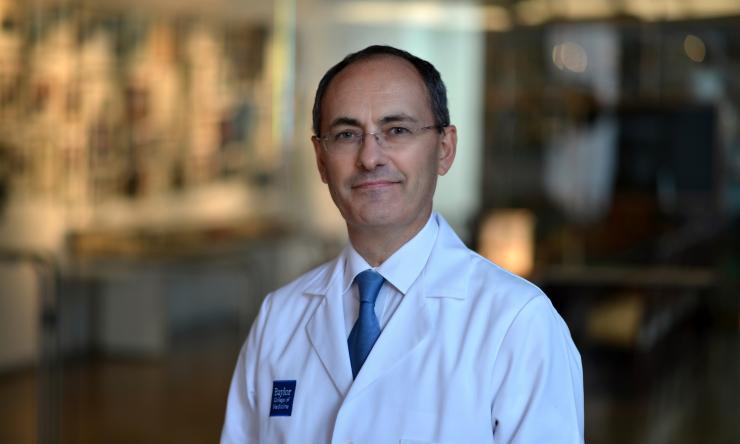Susan G. Komen® honors Dr. Matthew Ellis with Brinker Award
Susan G. Komen® annually recognizes the scientists who have made the most significant advances in breast cancer research and medicine. This year, Dr. Matthew Ellis, professor and director of the Lester and Sue Smith Breast Center at Baylor College of Medicine, has been awarded the Susan G. Komen® Brinker Award for Scientific Distinction in Clinical Research for his contributions to understanding the genomics of breast cancer and translating this knowledge to the clinic in order to improve the efficacy of breast cancer treatment.
Established by the Susan G. Komen for the Cure® in 1992, the Brinker Award for Scientific Distinction recognizes leading scientists for significant work in advancing research concepts and for clinical application in the fields of breast cancer research, screening or treatment. The award is presented to basic and clinical researchers who have made seminal advances in the fight against breast cancer. The Brinker Award is to be used to further the recipients' activities in breast cancer research. Ellis and the winners for basic science will be honored for their work at the San Antonio Breast Cancer Symposium on Dec. 11.
Ellis’s translational approaches to studying the genomic aspects of breast cancer and drug resistance and biomarkers for breast cancer prognosis, coupled with his pioneering research in the pre-surgical treatment of breast cancer, have led to the identification of tumor markers and implementation of new treatment regimens that are being increasingly used worldwide. Ellis, a McNair Scholar and associate director at the Dan L Duncan Comprehensive Cancer Center at Baylor, said his 30-year career has been focused on trying to improve breast cancer diagnostics.
“We cannot treat cancer effectively until there is a complete understanding of the disease drivers in each individual case,” Ellis said. “While non-specific and untargeted therapies such as chemotherapy and radiation sometimes work, it’s a hit or miss process with a lot of toxicity. We need 21st century diagnostics to guide the application of the increasing array of sophisticated therapeutic approaches that are becoming available.”
Ellis’s work concentrates on clinical trials and novel specimen acquisition approaches to ensure breast cancer samples are being studied using the deepest analytical processes possible.
“I don't see this award as only a personal achievement, but recognition for all the people I have worked with over the three decades I have been studying breast cancer,” Ellis said. “I can close my eyes and envisage hundreds of faces, not just patient volunteers, but researchers I’ve worked with, the advocates, the mentors. This is a team award for all those people as well.”
Ellis is a CPRIT Scholar in Cancer Research and the C. Kent Osborne Endowed Chair at Baylor College of Medicine. This year, he was awarded a research grant from Susan G. Komen® for his work on new ways to treat metastatic breast cancer. Ellis also has received a Komen Leadership Grant of $400,000 to define druggable pathways and molecules in patients with endocrine therapy resistant advanced disease.










